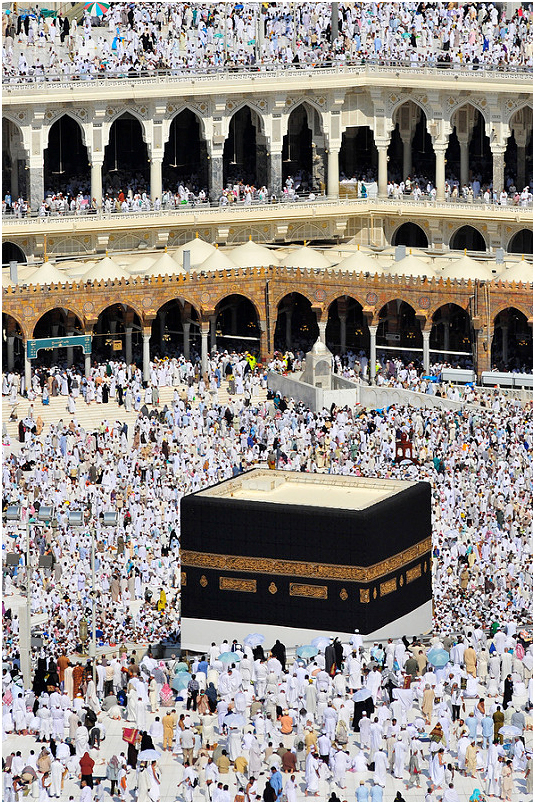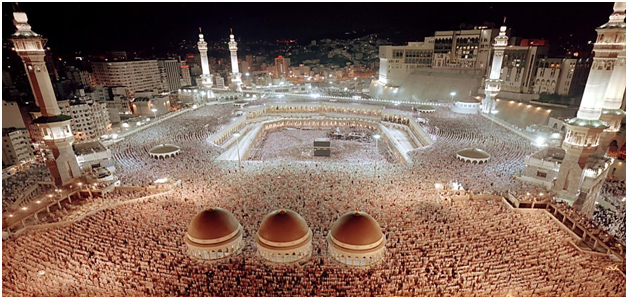Knowing the real nature of this life is the second part of understanding its meaning.
It’s just as simple and clear when you think about it.
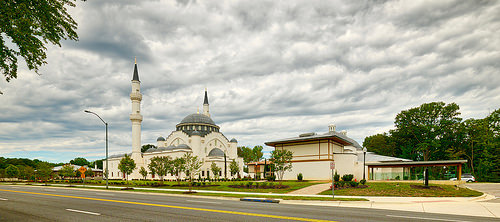
Photography: MD Phillips
And once again, Islam provides a compelling yet clear and practical explanation.
Life is a test.
Animals and plants fulfill their purpose within their ecosystems and natural processes by instinct alone. They can’t choose and don’t have the capacity to wonder. Similar it is with rocks, orbiting planets, etc.
But we humans dominate everything on our planet (and could on others too) with our great intellect. This intelligence is so powerful that we can almost limitlessly use the power of other things for our own ends. Think of how we harness animal power, wind power, gravity, etc. for our own use.
What’s more, we can operate beyond instinct and have a mysterious capacity to even defy it. We have choice in our actions.
So in these two respects—intellectual power and choice—, the difference between us and the visible creation around us is essentially infinite. Many honest scientists and philosophers will admit that this is something we will never be able to fully explain.
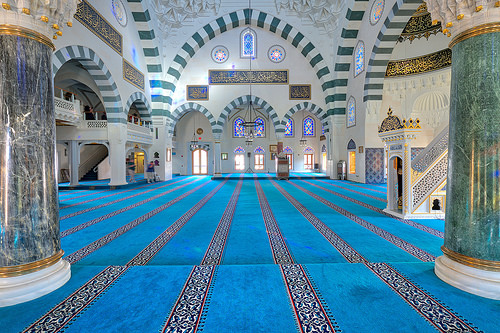
Photography: MD Phillips
With this power and choice we are endlessly faced with decisions. In fact life is essentially just a series of decisions! Our decisions can be for the benefit of our creation and the creation around us—or not.
Why would God create us this way? Why would he make our lives like this? Why would He be unseen and silent yet so obviously there in our lives and in nature around us—to the point that all of humanity has personally felt God’s profound presence in their lives at some point (even if they later brush it aside as nothing)?
Why would He give us bodies, a planet to share with others and allow us the power to harm or help them? Why would He give us an innate sense of right and wrong and make us constantly have to choose what to do?
Furthermore, there’s even a beginning and end to the whole experience—it’s timed!
Sound familiar?
It could only be because life is a test. We are being tried to see how we react to the situation. For with power comes responsibility. And with choice comes consequences.
Everything we do individually and collectively either protects the nature and order of God’s magnificent creation or ruins it. This applies even to our own selves. We can ruin our bodies, our lives, state of mind, and ultimately our relationship with God if we so choose. We can choose to do what is morally right or wrong.
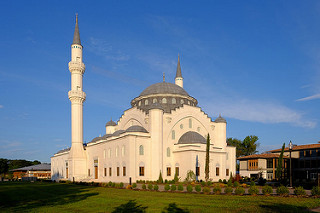
Photography: MD Phillips
Thus life is a trial to see if we are worthy beings, worthy shepherds over God’s creation—over our own creation as well as the creation around us.
God says:“and We shall make a trial of you with evil and with good. And to Us you will be returned”
(Quran 21:35)
Can there be any more coherent way to describe the nature of this life?
As with any test, wouldn’t we be naturally endowed with the ability and knowledge to pass? If God is the most-just, most-compassionate (since he created justice and compassion) and created this test, wouldn’t He endow us with the tools to pass?
Everyone is born with a built-in belief in God, as modern research confirms. Oxford University’s Justin Barrett says, “… children are born believers of what I call natural religion…”1 And OliveraPetrovich, also of Oxford University, considers children to be hard wired to believe in God.2
But it goes beyond that. We also naturally, unconsciously interpret things around us, and in the universe generally, as being for a purpose and pre-designed for that purpose—regardless of whether we are religious or not, highly educated or not. This has recently been demonstrated scientifically by Boston University researchers.3
Indeed the Quran described thisfitrahwith great accuracy long ago:
“This is the innate nature [fitrah] which God instilled in mankind—there is no altering God’s creation…though most people do not realize it. …” (Quran 30:30)
This tendency is of course confirmed by the sum total of human experience which tells us that anything with clear signs of design, craftsmanship and contrivance is always designed. Furthermore it is always designed with some intent for a purpose or function.
Also built into us is a need for God—to know Him, have a relationship with Him, get His assistance and blessings. Without it we experience emptiness and sadness inside. The spiritual need within us all is a well-accepted phenomenon.
No matter how a person fulfills their spiritual needs—religiously, scientifically, philosophically, etc.—it all goes back to a need for God both emotionally and rationally. The various things we may look to for spiritual fulfillment other than God (whether they are people, ideas, or even ourselves) are simply indirect or inadequate ways of fulfilling an unconscious need for God Himself. If we examine these spiritual objects closely, they all exhibit in our minds the very attributes only God could have in a perfect sense or which ultimately can come only from Him. (see article)
Furthermore, we all have a natural tendency to do what’s perceived as good. We are moral creatures who want to see things be right and better. Even lifetime criminals do some good intentionally and are opposed to certain injustices.
So the ability and the need to recognize guidance from God so that we may pass the test of life is actually something we’re all born with. It’s hard-wired into human beings.The Prophet Muhammad said,
“No child is born except in a state of fitrah (believing in and wanting to submit themselves to God, i.e. Islam)”4
But society confuses us into interpreting and pursuing it in ways that don’t lead directly to God and are thus never fully satisfying.
We were made to succeed by fulfilling our purpose in holistic worship (i.e. to recognize God for who He is, be in touch with Him, learn what He wants so we may please Him and be successful, seek his blessings, etc.
Yet the test is to overcome the distractions, temptations, and tests of this brief phase of existence so that we may be purified and prove worthy of a lasting and permanent relationship with Him, to exist in the perfected state of heaven which we naturally cannot be fully at ease without.
Some knowledge of course we can get by means of our natural instincts and intellect alone especially to meet our physical needs for food, shelter and society.
But more information is often required. Where we truly need help on are the specifics of how to live life individually and collectively in a way that will be pleasing to our Creator, thereby fulfilling our purpose, our function in the universe. Only then could we hope to achieve peace with the rest of creation around us and with our role in it. Then we would surely conduct ourselves properly towards our bodies, other people and as good shepherds over the rest of creation over whom we have power. And in doing so, we would fulfill our purpose or function and pass the test.
Having a relationship with God and being guided by divine spiritual and moral guidance is the only way to conduct ourselves properly, pass the test and achieve true inner tranquility. This is why God sent Prophets to every nation.
They show us how exactly to carry out love, loyalty, service, gratitude, admiration, obedience, praise and prayer to God so that we can fulfill our purpose, attain true peace and pass the test of this short life.
Throughout history people have sought out such prophets, or their followers, or whatever of their teachings they could find to attain salvation in this life and what inevitably must come after (see article).
Islam—which is to dedicate your entire being to the creator and to follow the guidance he has revealed through the prophets—is that path. This clear and simple path was what Abraham, Moses, Jesus, Muhammad and all prophets sent by God to mankind taught. Through it we get the details of exactly how to fulfill our purpose and achieve true happiness.
Works Cited
- Barrett, Justin L. Born Believers: The Science of Children’s Religious Belief, Free Press, 2012, pp. 35 – 36.
- “Infants ‘have natural belief in God’”, The Age National (Australia).https://www.theage.com.au/national/infants-have-natural-belief-in-god-20080725-3l3b.html . Accessed 25 June 2017.
- Kelemen, Deborah, “Reasoning About Purpose and Design in Nature:Are Children “’Intuitive Theists’?”, May 2004, Accessed 23 March 2018; Calloway, Ewen, “Humans may be primed to believe in creation”, March 2009, New Scientist online, Accessed 23 March 2018.
4. Narrated by Muslim





